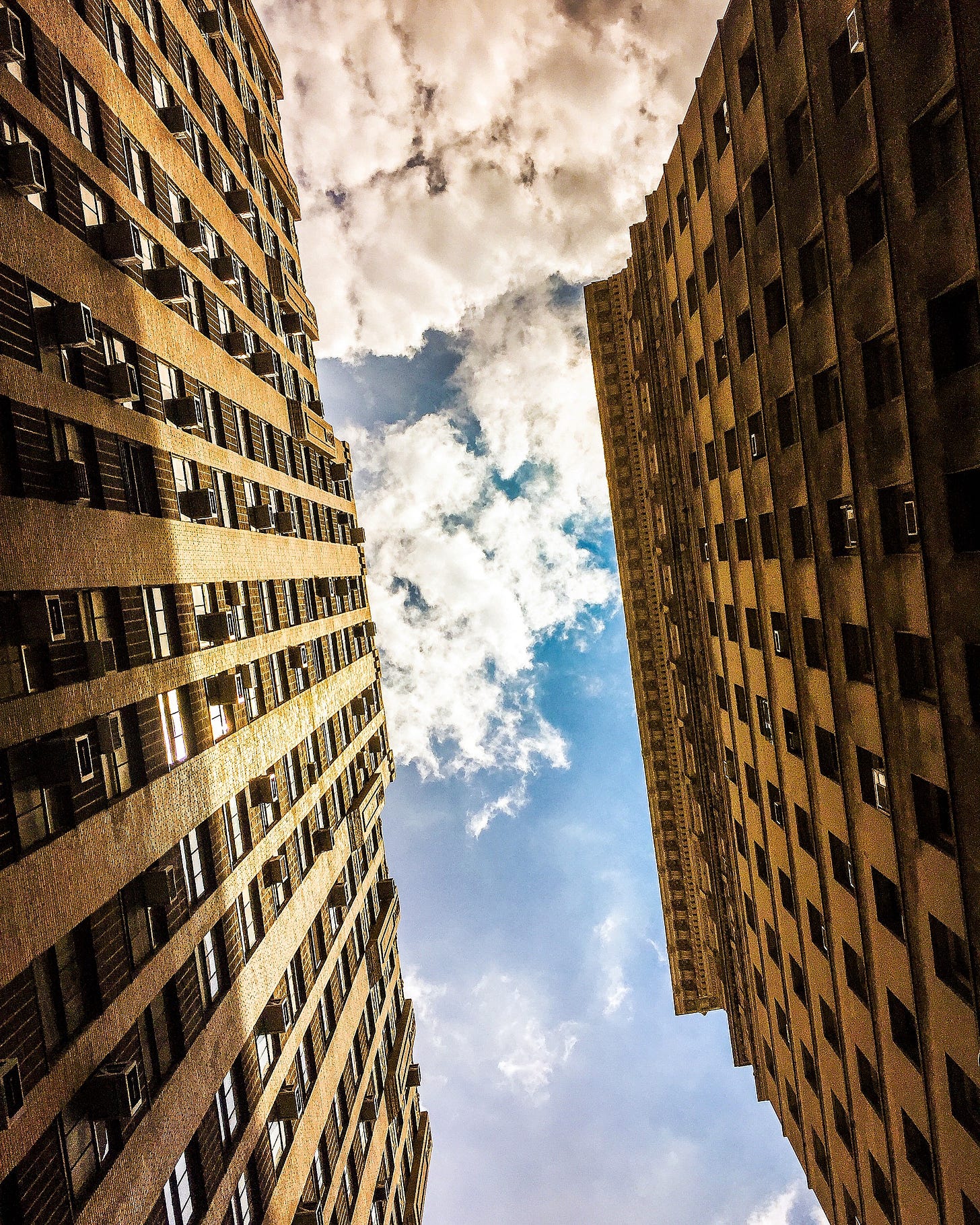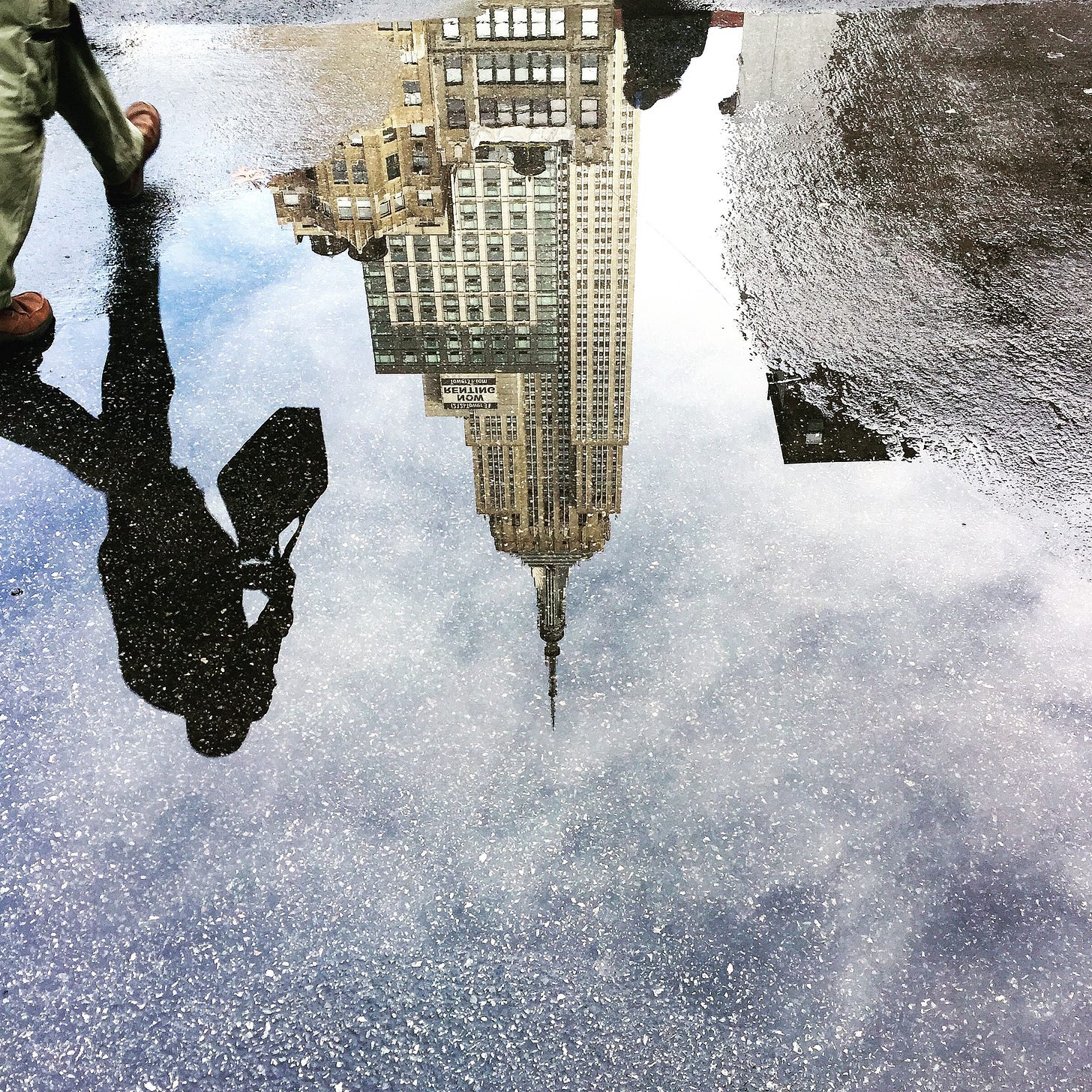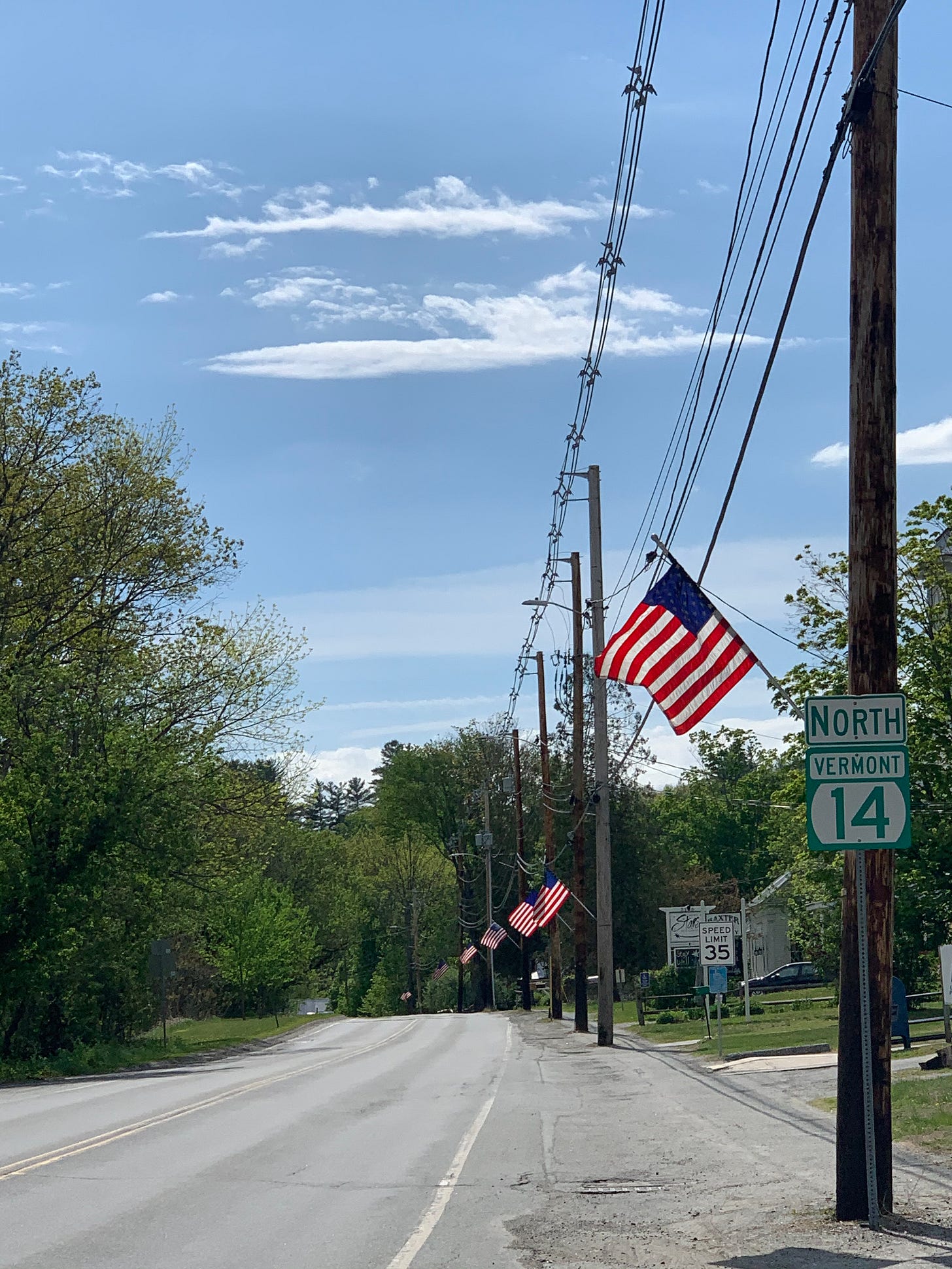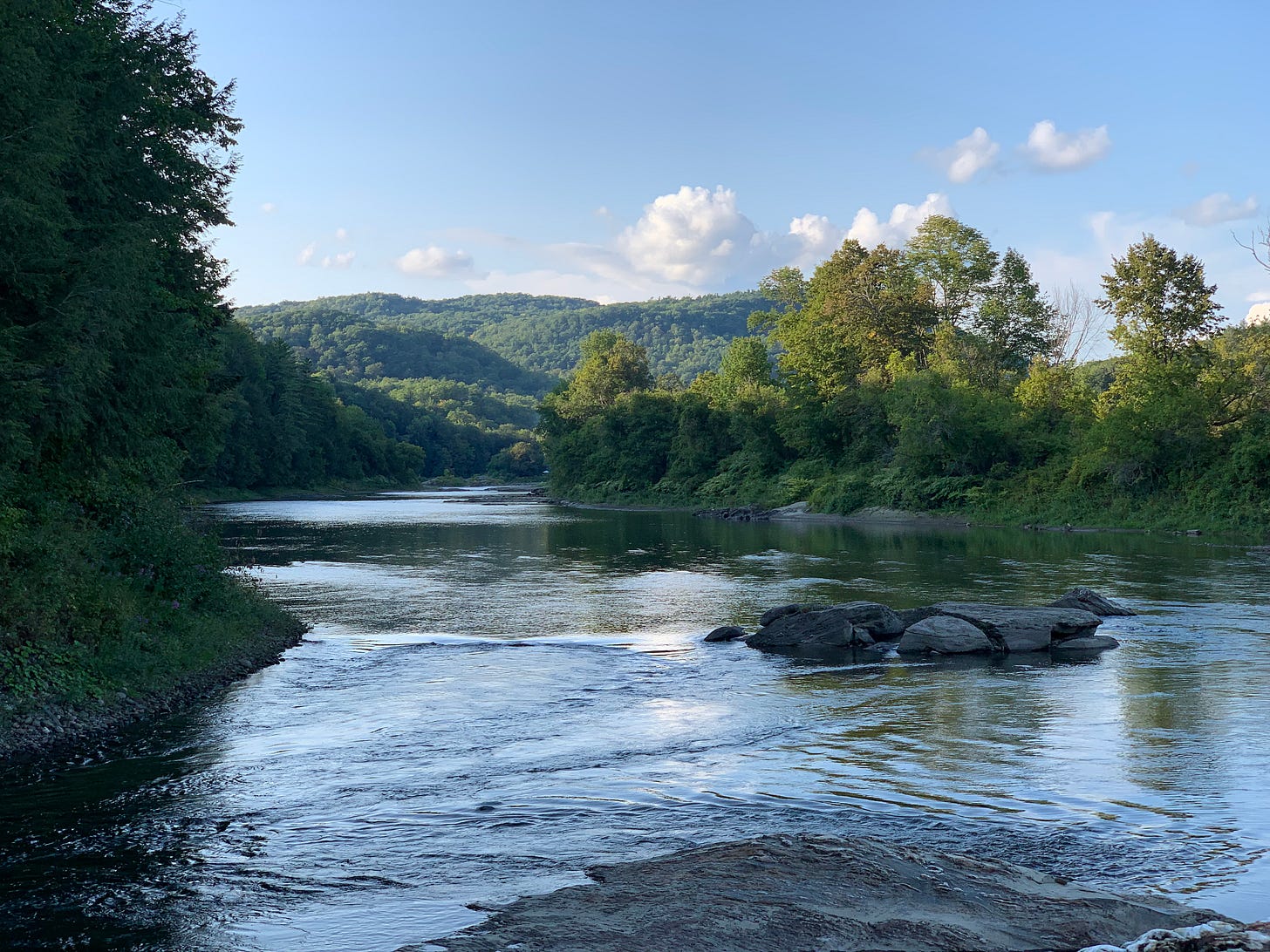My Life as a Stocked Trout
Trading the rooftops of NYC for riverbanks of the Northeast
I used to live in New York City. I had a quirky little apartment in Manhattan, a few hundred square feet on the fifth floor of a pre-war walkup. It had an old radiator with no thermostat, just a knob that opened and closed a valve. From Labor Day to Memorial day, the building’s heat was simply turned on, sending steam coursing through it. It hissed at the windows I’d throw open in fall and the gear I’d lay out on it to dry after a weekend of spring fishing. There was enough room for my books, a writing desk and a bed, though the latter barely fit in the so-called bedroom.
For years I called it home.
It was my second spring there when I discovered that, despite what the sign said, the alarm on the door to the roof would not go off should it be opened, and that a scrap of 2x4 was sufficient to keep me from getting locked out. It was a godsend that spared me from sweating through the most beautiful days of the shoulder seasons, and soon it became an extension of my living quarters.
Though it was surrounded by high rise apartments that marched closer every year, the roof felt removed, almost private. On sunny days I would lay out on a blanket with a book. Sometimes at night I’d climb up the tightly-wound stairs and search for the stars. The fresh air always improved my mood, even if you couldn’t see any.
It wasn’t long until I discovered that I could cast my fly rod up there. If I stood on the northernmost end of the roof, I could backcast over the street and lay down 40 to 50 feet of line without fear of tangling. Once, when I nearly lassoed a power line, I felt compelled to rethink the practice. But when the fishing itch got too strong and a getaway to the Catskills or the Adirondacks was impossible, I would head to the roof and imagine rising trout. I wonder what the people in those apartments would have thought if they had stopped to watch me cast a tuft of yarn at roosting pigeons.
It’s easy to think of a New York apartment as an island. But it’s actually part of an intricate archipelago of streets and buildings that form your neighborhood. I don’t mean the names we give to sections of town like Nolita or SoHo. I mean the rorschach of city blocks that you frequent, the places where you subsist.
It took me years, but I eventually established my spots: my dry cleaner was a few buildings to the west, my barber three blocks south. Half a block east was my 24 hour diner. To the west was my bar. New Yorkers, I learned, claim these places as their own. My bodega, my all-you-can-eat sushi place. They are places where the anonymity of city life is softened. Where you meet people who aren’t just passing through on their way to a business lunch or some late night rendezvous. I learned people's names and they learned mine. They rewarded this modicum of civility in their own ways: that drink is on me, or, I’ll have them pressed by tomorrow.
My favorite restaurant was a local Italian spot with a specials menu that never changed and half-off wine if you ordered it by the bottle. I would always get the pappardelle. It was $11.99 for a heaping portion. I went so often that the owner started sneaking me little fluted glasses of grappa when I was finished eating despite it not being on the menu. Sometimes after the meal he’d offer me a cigarette and we’d stand on the stoop and people watch.
E.B White once wrote that there are roughly three New Yorks. The first, he said, is the New York of the person born there “who takes it for granted and accepts its size and turbulence as natural and inevitable.” The second is the New York of the commuters, the throngs of people that wash over the town, returning to their homes in Connecticut, the Hudson Valley and New Jersey at night. The third New York is of those who came to it in search of something. “Commuters give the city its tidal restlessness, natives give it solidity and continuity; but the settlers give it passion,” he concludes.
Not long into my tenure I discovered that I lived in a fourth version of New York: the city of those who get sucked in by New York’s gravity and long to find a way out.
It’s not New York’s fault. The place has a vibe that can stir your soul or shake you to your core. It’s a playground, a beehive, a mark that you’ve made it. If you can make it here, you can make it anywhere, and so on. I did my best to drink the Kool-Aid, but it never quite took. Most days I felt like I had been invited to a party by a friend and discovered when I arrived that it was some cult’s final bacchanal.
I was always trying to get away. But New York pulls you in and holds you close. And the longer you stay, the harder it is to leave. The place has a feeling of urgency that makes one imagine that all it would take is a single taxi stopping short to set off a chain reaction that would eventually bring the whole island to a grinding halt. I’m late, I’m late, for a very important date! Such is the way with things that are so furiously powerful and yet so delicately poised.
I felt very much a part of the madness, and my mental tigers were always pacing. I longed for the honest, wild power of nature, the unstructured order that spins itself fractally into perfect imperfection. So I’d escape to it, impromptu and in a rush, as a man on his way to meet a secret lover. Fly fishing provided excellent cover, and made sense out of the madness of city living.
In March of 2020 New York lost its balance.
By the opening of trout season that year I was back on my home waters in Vermont. It was jarring to watch New York – alongside the rest of the world – come to a standstill from the relative safety of the little town in the mountains where I grew up. While life elsewhere was turned upside down, I quietly complied with social distancing thigh-deep in my favorite trout runs.
As weeks bled into months, the question of returning to the city kept resurfacing. For my wife, who lived her whole life in cities, Vermont was a strange, remote place. Too dark at night, too quiet. It didn’t help that within a few months of being there she’d seen two black bears, one of which nosed up to our bedroom window as if contemplating climbing in.
I hated to admit it, but life in the country wasn’t what I had remembered, or imagined. It all felt familiar but ungraspable, a recurring dream that you suddenly remember in a flash of déjà vu. Drives down dirt roads were trips down memory lane. Sometimes I’d point things out to my wife and tell a story, but mostly I’d quietly muse about places from my youth that we passed on our way to the post office or general store, like fragments of ancestral memories stirring deep in my DNA.
In New York, I was the guy from the country. Hopelessly out of touch with the vogue. Too earnest. In Vermont, I was the city boy. Weak, with soft hands and an impractical wardrobe. I’d been stunted by concrete, coddled by all-you-can-eat sushi and plates of pappardelle.
Life in the country requires an entirely different set of skills. A different demeanor. Suddenly it didn’t matter if I knew how to hail a cab or where to stand on the subway platform so that the doors would open right in front of you. What do you mean you don’t know how to use a chainsaw? Toughness is different too. I found life in the city to be a perpetual grinding of one’s teeth whereas country living relies on deep wells of patience. Knowing the seasons will change activates neurons that remain dormant when waiting for the next crosstown bus.
My fishing changed too. I once fished in staccato, loaded for bear on short outings hoping that one of my fly boxes held the right pattern, that I had brought the correct setup for the conditions. Weeks before a rendezvous with the river were spent scouring fishing reports and calling fly shops; google was my guide.
But wading into the once familiar concourse of my home waters reframed what it meant to be an angler. Matching a hatch was no longer a moonshot, but rather a methodical process of observing actual insects and iterating on patterns until they started inducing takes. For the first time in my fishing life, I could drive for fifteen minutes, test my flies in the best spots, and be home before dinner got cold. I had traded weekend escapism for a purposeful practice spread out over the undulations of an entire season.
My wife and I recently moved into our first home, a cute little ranch with a red door. It had been left largely untended since it was built in 1981, and despite its rough edges we leapt at the chance to have a place of our own.
While searching for my vise in a jumble of boxes, I discovered the note cards I kept in my writing desk in New York. Their thick cream stock with an embossed rainbow trout leaping across the top a symbol of the wild rivers that always called to me.
Holding them now, in the quietude of Vermont, I couldn't help but smile at the memories of that compact urban life, the rogue radiator, and the warmth of sunny afternoons spent in pursuit of rooftop pigeons. I lingered for a moment and then opened another box.
Spring, I reminded myself, is only a few short months away.






